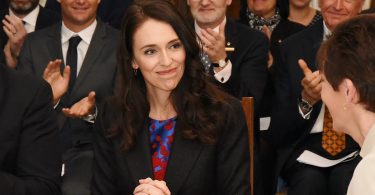“Do you want the Kurdistan Region and Kurdish areas outside of the Kurdistan Regional Government (KRG) to become an independent state?"
On Wednesday evening, the result of the controversial referendum on full independence for Iraqi Kurdistan was announced: “yes”.
A total of 92.73% of votes were in support of Kurdish independence from Iraq.
In Erbil, Iraqi Kurdistan’s capital, this will mostly be welcome news, and comes as no surprise. Reports indicate a high turn out; with 72% of registered voters taking part, and whilst the region is not politically unified, there is little faith in the federal government based in Baghdad.
As the largest ethnic group without a state in the world, some form of Kurdish independence has been aspired to in this region for decades. The Iraqi Kurdistan region achieved a level of autonomy in 2005, but its’ reach is limited and still answers to Baghdad. A referendum on complete independence was announced back in July 2014, to capitalise on worldwide pro-Kurd sentiment following impressive military victories against the Islamic State group, but there had been hopes of delaying the decisive vote in favour of UN brokered talks with Baghdad.
So what next?
All eyes will be on Masoud Barzani, President of the Kurdistan Regional Government and architect of the referendum. He has made clear there will be no immediate declaration of independence following the result, and will instead initiate talks with the Iraqi government in Baghdad.
Such negotiations would require openness from both sides, however, and Haider al-Abadi, Iraq’s prime minister, has assured his parliament he has no intention of holding talks with the Kurdish authorities, and demanded that the outcome be cancelled.
Abadi has repeatedly called the referendum “unconstitutional”, threatening to intervene militarily should the process cause any violence. He has demanded that the region surrender control of its international airports.
How did we get here?
Kurdish ambitions of independence have been harboured for decades, since the breakup of the Ottoman Empire following WWI. Kurds primarily inhabit areas of Turkey, Iraq, Iran and Armenia, but with Iraqi Kurdistan being self-governing, it is here that many thought a sovereign state most possible. This current referendum has provided hope that this will finally become a reality, although a “yes” vote does not signal immediate withdrawal from the Iraqi state. A similar, non-binding poll was held in 2005, and Barzani has indicated that the result is to be used for leverage in talks with the Baghdad government over what the future holds for the territory. The difference this time, as opposed with 2005, is the balance of power has shifted. Media coverage of the Kurdish Peshmerga taking a stand against the Islamic State proved popular in the West, especially the idea of a unit made up entirely of women. Since then, there appeared to be much more sympathy and support for the question of Kurdish sovereignty.
International opposition to the referendum
The referendum not only threatens to redraw the borders in Iraq, but also holds unwanted implications for the neighbouring states of Turkey and Iran; home to sizeable Kurdish minorities. Turkey has strongly opposed the referendum, threatening to close its border and block vital oil exports out of Kurdish territory, and even conducted joint military manoeuvres with the Iraqi army near the border at Habur. Despite a close working relationship with Erbil and Barzani’s KDP, Turkey is concerned that independence for Iraqi Kurdistan will increase calls for autonomy amongst its own sizeable Kurdish population, estimated to number about 14 million people.
As for the US, there remains a tough decision on who to support. Since Nato military operations commenced in 1991 to protect the Kurds from Saddam Hussein’s brutality, they have emerged as an erstwhile ally for Washington, and the Kurdish Peshmerga has at times proven far more effective in fighting Islamic State than the conventional Iraqi army. But the US ultimately wants a united Iraq and had hoped to at least delay the referendum, with efforts to drive out the final remnants of Islamic State in Iraq ongoing. Highlighting this conflict of interest, a US State Department press statement describes a position of being “deeply disappointed” in the referendum being conducted, whilst stressing their “historic relationship” will not be effected.
Territorial Gains
What has infuriated Baghdad the most, is that the area specified in the referendum includes Iraqi territory which has been seized by the Peshmerga from Islamic State. Areas such as the oil-rich city of Kirkuk previously lay outside of the borders of Iraqi Kurdistan, leading Abadi to assert that recent events have simply been an exercise by the Kurds to control more of Iraq’s oil reserves.
The disputed territory will be a prized bargaining chip for Barzani heading into negotiations, when, and if, they materialise. For Abadi, the act of agreeing to talks would be giving the referendum a legitimacy that would immediately undermine his own position.
Therefore, as things stand, there is no political incentive for either side to back down. Such a stalemate will need mediating. The US is a natural candidate simply because of how invested it is in Iraq’s future, but Turkey, and to a lesser extent, Iran, will also be primed to influence proceedings.
In the short term, Abadi will not allow the North to secede without a fight, but the two sides are unlikely to engage militarily. For all his rhetoric, the Iraqi prime minister is aware that international actors will not allow another civil war in the Middle East, and there must be doubts over the readiness of an army exhausted by the fight against Islamic State.
Despite the vote, the Kurds’ decades long struggle for a homeland is not there yet.








